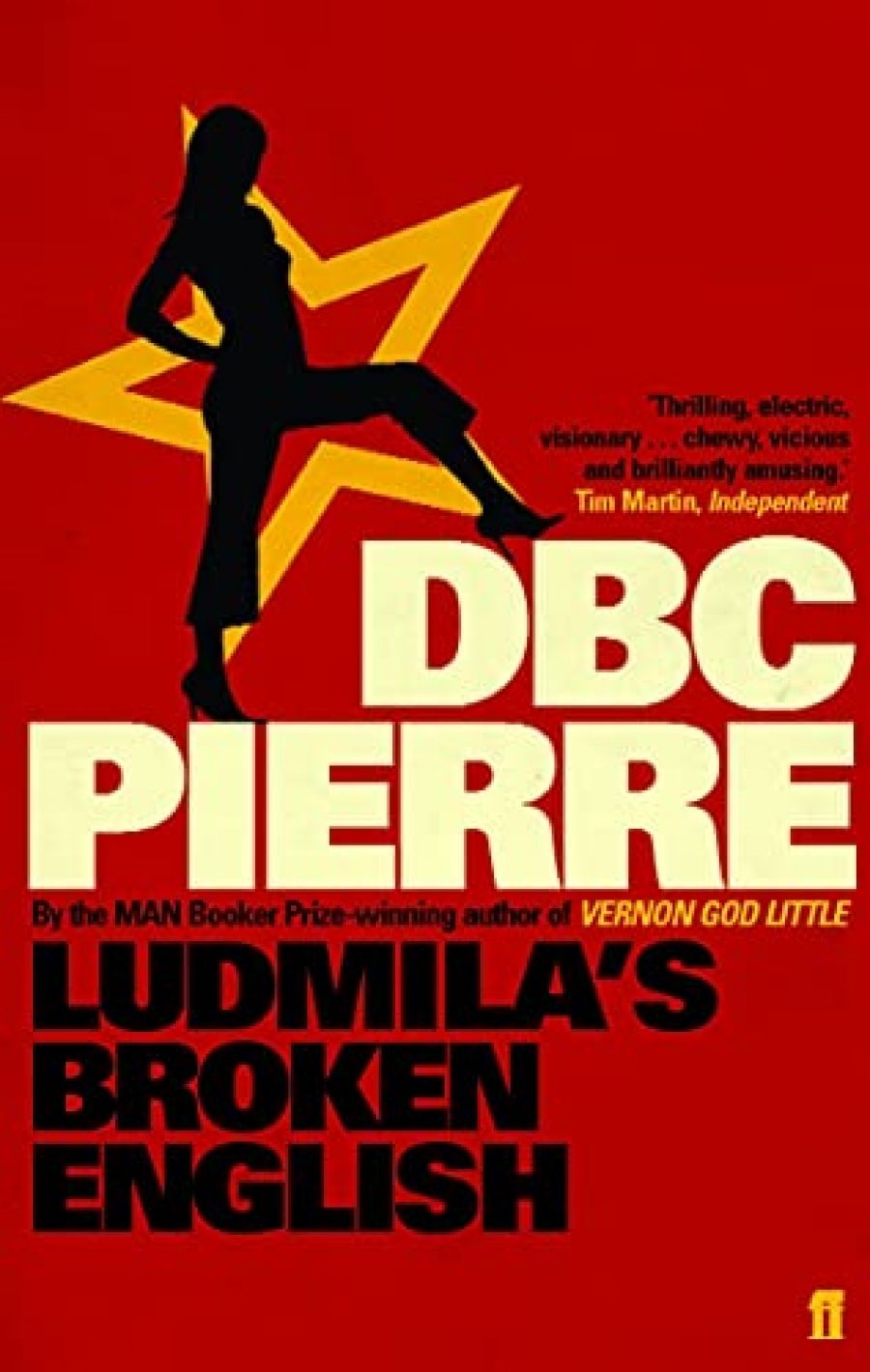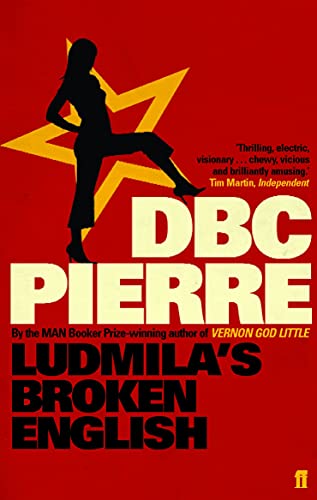
- Free Article: No
- Contents Category: Fiction
- Review Article: Yes
- Article Title: Pierre's bad trip
- Online Only: No
- Custom Highlight Text:
Vernon God Little (2003) was the striking first novel everyone said it was, and seemed to promise better things to come. D.B.C. Pierre had a preternatural way with language, even if it wasn’t always under his control. You could tolerate the sophomoric and tritely executed satire (America is full of fat, stupid, venal people; America is just a great big television show), as it seemed the flawed trying-out of someone who hadn’t found his way to the things he really wanted to write about.
- Book 1 Title: Ludmila's Broken English
- Book 1 Biblio: Faber & Faber, $29.95 pb, 318 pp
- Book 1 Cover Small (400 x 600):

In England, the Siamese twins Blair and Bunny (‘omphalogous: conjoined anteriorly at the trunk’) have recently been separated and set free from the institution in which they spent the first thirty-three years of their life. They are now holed up in a flat in London, trying to take on the world. At any rate Blair is; the more timid Bunny doesn’t buy into his brother’s cant about self-actualisation and new trajectories. Meanwhile, somewhere in the backblocks of Russia – the book is dedicated to the people of Hayastan, the native name for Armenia – Ludmila plans to escape from poverty and hopelessness with her soldier lover, but events conspire against her, and she finds herself involved with one of those Internet bride scams. What narrative energy the book has derives from the cross-cutting between the two plotlines and the inevitability of their coming together.
The characters of the twins never take off. Pierre hasn’t given them enough of the circumstantial detail that even the wackiest conceits need to live: he is too in love with the sound of his own jazzed-up style to realise the people he is writing about. And the humour in the Russian sequences is every bit as corny as the anti-American jokes in Vernon God Little, though instead of fast food and crass television reporters, we get tractors, goats, vodka and lewd, low-minded peasants. You wouldn’t know that Pierre has in fact been to the place he is writing about: it’s a Russia or Armenia of the mind, when the mind is that of a David Letterman gag writer, and it suggests that, no matter where some people go, they see only what they expect to.
It gets worse. Pierre makes all his Russian characters sound as if they have been auto-translated by Google. Their dialogue, like that of the Spanish characters in Hemingway, reproduces an English-speaker’s idea of non-English idiom and syntax, only Pierre lays it on with – well, a tractor:
Pilosanov roared as the hamlet sank behind them. ‘A bigger goose couldn’t be born! ... I have his tractor and he’s left with nothing under the sky to show!’ ... He turned to smirk at Ludmila. ‘You’re safe now, little cat. No more do you have to assort your creams amongst your family.’
And so gruellingly on – a Monty Python stunt that you’d normally restrict to a minor character but that Pierre keeps up for every other chapter in a 300-page book. It is grotesque and dull at the same time, and it’s not funny enough (it’s not funny at all) to keep you from noticing the witless quasi-racism. It’s not so much politically incorrect as politically tone-deaf (here, as in the rest of the book, you wonder if Pierre really has any idea what he is doing): look at the funny foreigners talking funny! You may recall the old cliché about how hard it is to keep track of the characters in Russian novels. Actually, it isn’t that hard: one thing the Russian masters were good at was making their characters physically and aurally vivid. Because Pierre’s Russians all sound the same, and none of them sound like human beings, you will have trouble keeping a clear idea of who anyone is and what happened the last time you encountered them.
In the Russian sections, the surrounding récit borrows some of this manner, though it’s not quite as tortured; but then the style throughout, in both the English and Russian sections, is pretty rich and hyperactive with metaphor, and every word is a little red engine: ‘Night’s gravy was thinning. Although the basement’s tiny street-level window was shut, its net curtain wavered, hoovering air from the road: a road spread with a Marmite of diesel soot and pigeon shit.’ The second sentence here looks like good writing in the showy Amis-by-way-of-Bellow-and-Nabokov vein, and the first looks like what you get when a writer tries at any cost to extort from himself those high-gloss effects. You get both indiscriminately by turns, and none of it is being used for any purpose beyond itself, for instance to pinpoint character or to establish mood and the emotional structure of a scene: it’s just compulsive phrase-making – a kind of echolalia – and it reads like how a bad trip feels.
The bad trip is also in the content, and the Siamese twins are by no means the worst of it. Fifteen pages into the novel, Ludmila’s grandfather attempts to bugger her – those subhuman Slavs! – and Ludmila’s Broken English intermittently throws this kind of blurting, try-hard tastelessness at you, which Pierre also seems to have nicked from Amis and his epigones, such as Will Self.
It is usual in a case like this to make encouraging noises about second novels being hard and let’s hope he gets back on track. If you have just put this novel down, and I predict that many people will be putting it down well before the end, even that much charity may elude you.


Comments powered by CComment